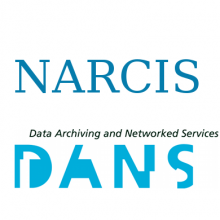Resource information
Dutch Abstract: De openbare registers voor registergoederen zijn voor iedereen toegankelijk. Eenieder kan inzage verzoeken bij de Dienst voor het kadaster en de openbare registers (‘het Kadaster’). Deze openbare registers dienen het publiciteitsbeginsel in het goederenrecht, dat wordt gezien als een instrument voor het bewerkstelligen van rechtszekerheid met betrekking tot goederenrechtelijke rechten. Daarmee is het beginsel nauw verbonden met de absolute werking van goederenrechtelijke rechten. Omdat deze rechten tegen eenieder werken vereist het publiciteitsbeginsel dat deze rechten voor derden kenbaar zijn. In deze bijdrage wordt ingegaan op het spanningsveld tussen publiciteit en privacy. In het bijzonder wordt stilgestaan bij het in Nederland vigerende stelsel van volledige openbaarheid dat door de opkomst van het persoonsgegevensbeschermingsrecht ten dele moest worden ingeperkt en aangepast. Daarna volgt een korte uiteenzetting van het Duitse systeem van toegang tot de registers van registergoederen, waar de toegang tot de registers beperkt is voor zij die een ‘gerechtvaardigd belang’ hebben bij inzage. Met een dergelijk systeem wordt zowel publiciteit als privacy gewaarborgd. Dit artikel zal worden afgesloten met de conclusie dat het Nederlandse stelsel van vrijwel onbegrensde openbaarheid zijn doel voorbijschiet. English Abstract: The public land registers in the Netherlands are open to everyone. This serves the publicity principle of property law; because property rights have an effect against (in principle) everyone, everyone should be able to get information about the existence and content of these rights. This contribution deals with the tension between publicity of property rights and the privacy of those registered. The rise of data protection law in relation to public registers in the Netherlands is discussed, after which a comparison with the German system for access to land registers is made. In Germany access is limited to those that can show a legitimate interest in the information. The article concludes that by having unlimited access to the land registers, the access regime goes beyond its goal and is therefore (perhaps) incompatible with data protection law.


